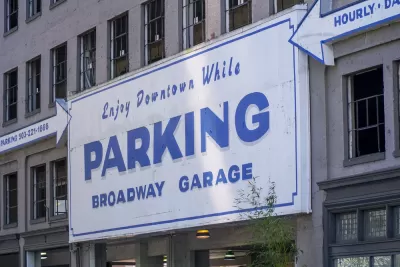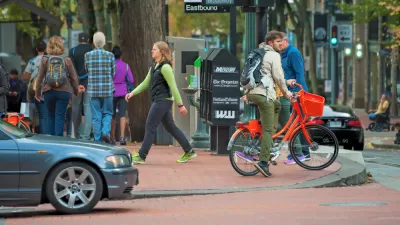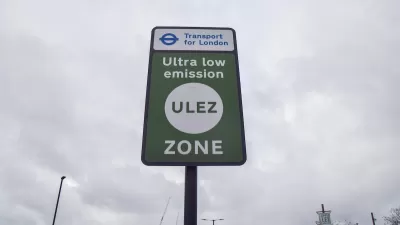A new task force formed in Portland, Oregon will consider ways to make automobile use more expensive, including parking pricing, area and time-based fees, fleet charges, road user charges, cordons, and freeway pricing.

The city of Portland is organizing a new Pricing for Equitable Mobility Community Task Force, tasked with developing new policies that will more fairly price the cost of automobiles on public roads, according to an article by Jonathan Maus. The task force will be a joint effort headed by the Bureau of Transportation (PBOT) and Bureau of Planning and Sustainability (BPS).
"PBOT Commissioner Chloe Eudaly is a major fan of congestion pricing so it should come as no surprise that she’s looking for policy and public backing to strengthen its case," explains Maus of some of the political will driving the formation of the new task force.
The city is following in the footsteps of the state of Oregon, which approved legislation in 02017 mandating the Oregon Department of Transportation to move forward with congestion pricing. "Their plan to toll I-5 and I-205 was sent to the Federal Highway Administration in December 2018," according to Maus. (Planetizen correspondent Irvin Dawid also gathered information on that plan in 2018.)
Portland's exploration into new pricing schemes are expected to be much more expansive. "In a statement, Portland said strategies that will be considered by the task force may include, but are not limited to: 'parking pricing, area and time-based fees, fleet charges, road user charges, cordons [priced zones], freeway pricing and more'."
FULL STORY: City task force will explore how to make drivers pay true cost of road use

Study: Maui’s Plan to Convert Vacation Rentals to Long-Term Housing Could Cause Nearly $1 Billion Economic Loss
The plan would reduce visitor accommodation by 25,% resulting in 1,900 jobs lost.

Alabama: Trump Terminates Settlements for Black Communities Harmed By Raw Sewage
Trump deemed the landmark civil rights agreement “illegal DEI and environmental justice policy.”

North Texas Transit Leaders Tout Benefits of TOD for Growing Region
At a summit focused on transit-oriented development, policymakers discussed how North Texas’ expanded light rail system can serve as a tool for economic growth.

Nevada Bills Aim to Establish Home Insurance Assurance Amidst Wildfire Risk
Republican sponsor hopes the FAIR plan would be “a true market of last resort.”

Virginia Law Allows Judges to Mandate Speed Limiters
The law could set a new precedent for speed limiting tech on U.S. vehicles.

Comment: EPA Cuts will Send Atlanta Back to Eye-burning Ozone, Lung-damaging Smog, and Raw Sewage in the Chattahoochee River
A veteran political journalist takes stock of the hard-earned ground Georgia stands to lose with slashed environmental protection.
Urban Design for Planners 1: Software Tools
This six-course series explores essential urban design concepts using open source software and equips planners with the tools they need to participate fully in the urban design process.
Planning for Universal Design
Learn the tools for implementing Universal Design in planning regulations.
City of Santa Clarita
Ascent Environmental
Institute for Housing and Urban Development Studies (IHS)
City of Grandview
Harvard GSD Executive Education
Toledo-Lucas County Plan Commissions
Salt Lake City
NYU Wagner Graduate School of Public Service





























